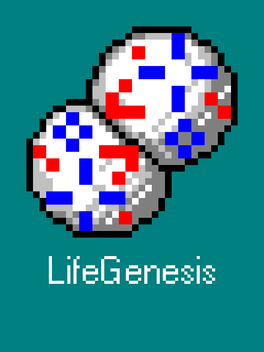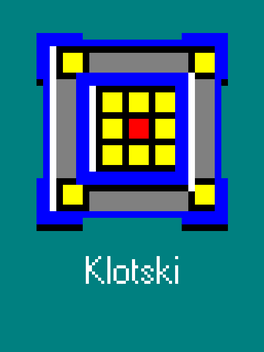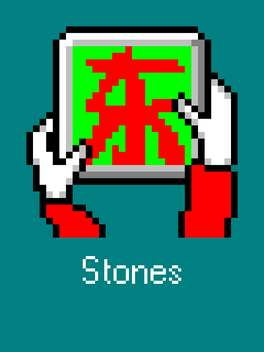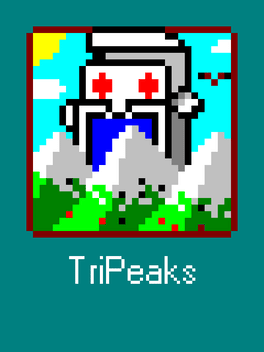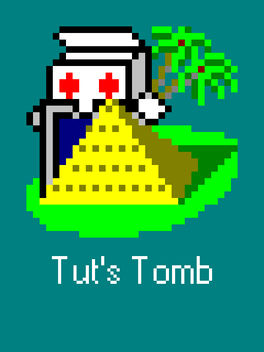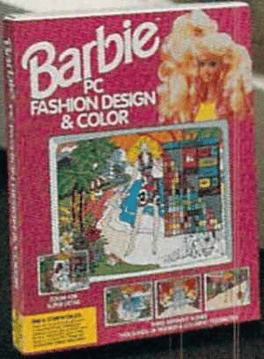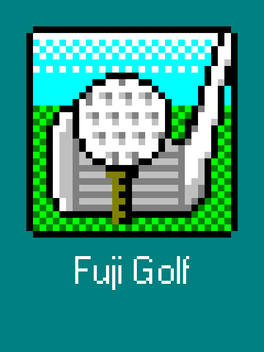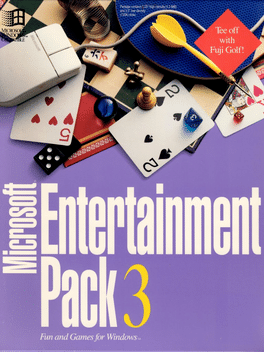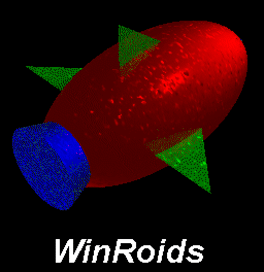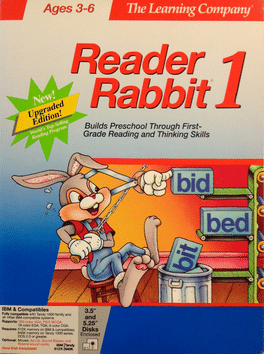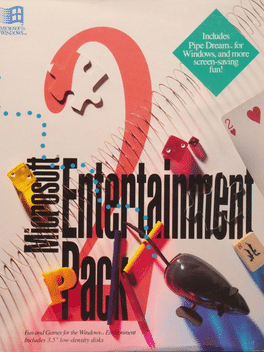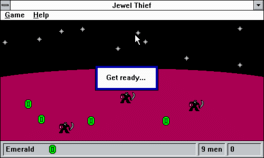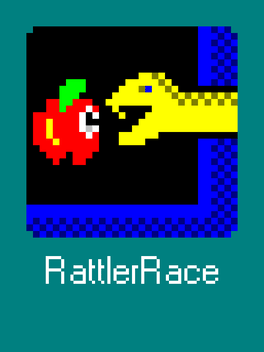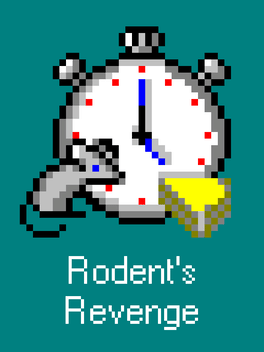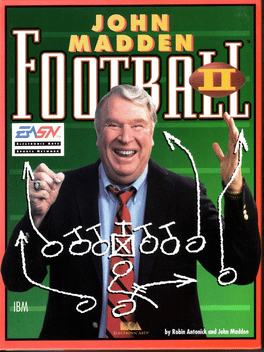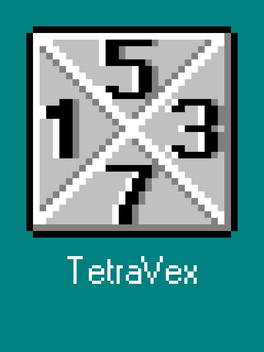New Pc Microsoft Windows Games - Page 3978
-
LifeGenesis
1991
LifeGenesis
1991
The object of the game is to remove all the red cells from the grid. The computer will try to remove all the blue squares. You and the computer take turns adding and deleting cells. -
Klotski
1991
Klotski
1991
Klotski is an ancient Polish game that provides mathematical problems in the form of a small wooden game board with various sized blocks. The object of the computer game is to free the "master block," in as few moves as possible. The computer scores you on the number of moves it takes to solve a puzzle. 24 puzzles are included, as well as a puzzle editor. -
Stones
1991
Stones
1991
Stones is a game developed by Michael C. Miller and released in 1991 as part of Microsoft's Windows Entertainment Pack. The object is to place 90 tiles, or "stones", on a board. A tile can only be placed if it shares two of three attributes - background color, character color, or character shape - with every adjacent tile. Wild tiles may be placed anywhere regardless of attributes. The game is won when all tiles are placed or when there are no valid spaces to place the next tile. -
TriPeaks
1991
TriPeaks
1991
TriPeaks is a patience or solitaire card game that is akin to the solitaire games Golf and Black Hole. The game uses one deck and the object is to clear three peaks made up of cards. It was created by Robert Hogue and popularized as a result of being included in Microsoft Solitaire Collection 3. -
Tut's Tomb
1991
Tut's Tomb
1991
Tut's Tomb is a variation on "Pyramid", a patience or solitaire game of the Simple Addition family, where the object is to get all the cards from the pyramid to the foundation. The object of the game is to remove pairs of cards that add up to a total of 13, the equivalent of the highest valued card in the deck, from a pyramid arrangement of 28 cards. When using the standard 52-card deck, Jacks are valued at 11, Queens at 12, and Kings at 13. -
Barbie PC Fashion Design & Color
1991
Introducing a whole new world of fun! Now, you can enhance your child's creative potential with the new Barbie PC Fashion Design & Color! It's an explosion of fashion, color, and fun! This menu-driven software program lets your child select, then color Barbie fashions. Thousands of combinations to choose from for hours of fun. Available for IBM or IBM-compatible PCs in 3½ inch and 5¼ inch Disk versions. -
Fuji Golf
1991
Fuji Golf
1991
Fuji Golf is a golf sports video game released with Microsoft Entertainment Pack 3 for Windows in 1991. The object of the game is to play the round (18 holes) in as few strokes as possible. Factors such as wind are automatically generated, and the player plays against various computer-generated scores. -
Microsoft Entertainment Pack 3
1991
Microsoft Entertainment Pack is a collection of casual games for Windows. This pack includes: – Fuji Golf – Klotski – LifeGenesis – SkiFree – TetraVex – TriPeaks – WordZap – IdleWild (a screensaver program) -
Winroids
1991
Winroids
1991
An Asteroids-inspired arcade shooter for Windows 3.1 with pre-rendered 3D sprites, powerups, and enemies. -
WordZap
1991
WordZap
1991
star 4.7WordZap is a puzzle video game designed by Michael Crick included with Volume 3 of the Microsoft Entertainment Pack. In WordZap, players race to make proper English words to fill their rack of words, but when one player makes a word already found by the other player, the word is "zapped" from both players' racks. Each round ends when either one player fills the word rack, or time runs out without either player being able to make another word. -
Warheads for Windows
1991
Warheads for Windows
1991
Warheads for Windows is a clone of Atari's popular 1980 arcade game, Missile Command. Originally it was pretty much a straight rip-off of the classic "intercept the falling missles" game, where you had two missile launchers (instead of three) that you could use to shoot down incoming missiles (the left and right mouse buttons fire from the left and right missile launchers, respectively) to prevent them from destroying six cities below. The missile launchers have a finite number of missiles and can be destroyed by missiles. You earn points for shooting down missiles, nukes and airplanes, and for each city that survives each round, which can earn bonus cities which replace destroyed cities. When you have no cities left, the game is over. Version 2.0 added sound card support; a large number of configurable options; a display of how many missiles each launcher has remaining; branching missiles (MIRVs), and "blossoming" explosions, in which the destroyed missiles blow up and can destroy the other missiles, causing a ch -
Reader Rabbit 1
1991
Reader Rabbit 1
1991
This remake of the original Reader Rabbit was the beginning of the franchise split between different age groups. -
Microsoft Entertainment Pack 2
1991
Microsoft Entertainment Pack is a collection of casual games for Windows. This pack includes: – FreeCell – Jigsawed – Pipe Dream – Rattler Race – Rodent's Revenge – Stones – Tut's Tomb – IdleWild (a screensaver program) -
Jewel Thief
1991
-
Rattler Race
1991
Rattler Race
1991
Very much a snake game, Rattler Race adds a few twists to the long-held conventions of the genre (those being: you guide a snake from a top-down perspective, always in forward motion; it eats its targets and grows in length, but dies should it collide with any obstacles): in addition to a competing snake foiling your routes, a ball bounces around the play-field, Pong-style, killing your snake should the ball ricochet against its head. The other standout qualities are largely cosmetic: periodically enemy movement "freezes", giving the player a period of free motion; the opposing snake will also "eat" your targets (here "apples" -- occasionally bonus "golden apples") and grow longer, though it doesn't seek them out; gameplay can be conducted with as many as three opposing snakes and three bouncing balls complicating the playfield at once; you head for the exit once all apples are eaten, but the enemy snake(s) can exit instead, restarting the level. Triumph against all these odds and you get 29 more levels of similar -
WarBirds II
1991
-
RoboMaze: The Basement
1991
RoboMaze is a top down shooter by Wetware, in which you play as a freedom fighter, fighting against an oppressive robot regime. -
Rodent's Revenge
1991
-
John Madden Football II
1991
John Madden Football II is a football video game. It features John Madden on the cover. This edition had updates such as larger playbooks and more insight from John Madden. -
TetraVex
1991
TetraVex
1991
TetraVex is a puzzle computer game, available for Windows and Linux systems. TetraVex was originally available for 16-bit Windows in Windows Entertainment Pack 3. It was later re-released as part of the Best of Windows Entertainment Pack. TetraVex is also available as an open source game on the GNOME desktop as part of the GNOME Games collection under GNU GPL. A 32-bit Windows version was written in Delphi by Mark Billig. The original version of TetraVex (for the Windows Entertainment Pack 3) was written (and named) by Scott Ferguson who was also the Development Lead and an architect of the first version of Visual Basic. TetraVex was inspired by "the problem of tiling the plane" as described by Donald Knuth on page 382 of Volume 1: Fundamental Algorithms, the first book in his The Art of Computer Programming series.
